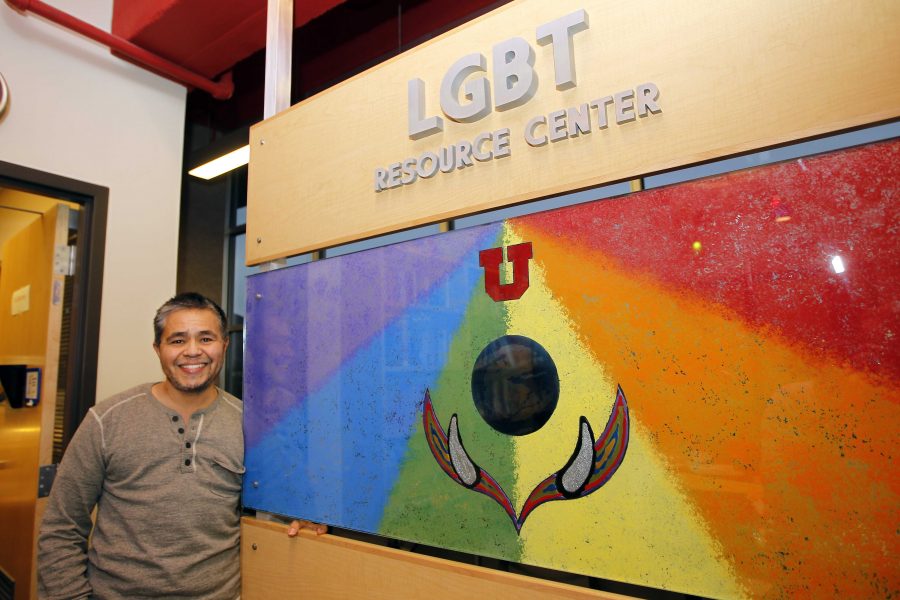Action Week 2017, a week dedicated to “unmasking and uplifting those who are erased in the LGBT community,” began with a panel about the erasure of asexual and bisexual individuals on Monday afternoon. The panel, consisting of five University of Utah students who identify as members of the LGBT community, answered questions about their experience living in a society that often renders them invisible by invalidating one or more of their identities.
After introducing the panel, the moderator, Madeline, who along with the rest of the panel asked to have their last names omitted, began by asking questions pertaining to the theme of this year’s action week — erasure.
Most said they experienced invalidation when people they knew wrote off their identity as a phase. Jae, one of the students on the panel, told of the erasure they experienced as an asexual in the disabled community. Members of the disabled community often take issue with Jae’s sexual orientation.
“Within the disabled community, we are all assumed to be sexual because we had to push so hard for basic rights that way,” said Jae. “So, my [asexual] identity gets erased there.”
Madeline asked the panel how “coming out” has benefitted them.
“When I came to terms that I was pansexual, I realized that I had a sexuality that also reflected my personality, where I can look at somebody and just appreciate their beauty,” said Bree, who was raised in an LDS home and struggled against feelings of same-sex attraction until she came out in college. Since then, she feels relieved to be open and honest with herself. “I don’t have to worry about, you know, sex, gender or whatever.”
After Madeline finished asking questions, they turned the time over to the audience of a little over 25 people. One audience member asked if there is space for individuals questioning their sexuality in the LGBT community.
Most of the panel answered affirmatively, assuring the audience that people questioning their sexuality would feel welcomed there. One panelist, Maggie, shared a different opinion.
“There is a space, but it’s not going to be everywhere,” said Maggie, who has felt unwelcome from time to time as a member of the LGBT community at the intersection of race and sexual orientation.
Another audience member asked if the panel feels labels are restrictive or liberating. The panel gave mixed responses, though most agreed that there needs to be more progress made regarding the use of labels.
“If you don’t have a label for your identity and you want one but there isn’t one, then there should be that freedom to either find one or make one,” explained Salem, who himself feels comfortable with the labels he has been given, but understands how they can be restrictive and frustrating. “If you want a word to describe yourself, then there should be one out there.”


